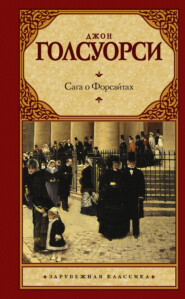По всем вопросам обращайтесь на: info@litportal.ru
(©) 2003-2025.
✖
Justice
Настройки чтения
Размер шрифта
Высота строк
Поля
COKESON. But I can't help thinking that to shut him up there by himself'll turn him silly. And nobody wants that, I s'pose. I don't like to see a man cry.
THE CHAPLAIN. It's a very rare thing for them to give way like that.
COKESON. [Looking at him-in a tone of sudden dogged hostility] I keep dogs.
THE CHAPLAIN. Indeed?
COKESON. Ye-es. And I say this: I wouldn't shut one of them up all by himself, month after month, not if he'd bit me all over.
THE CHAPLAIN. Unfortunately, the criminal is not a dog; he has a sense of right and wrong.
COKESON. But that's not the way to make him feel it.
THE CHAPLAIN. Ah! there I'm afraid we must differ.
COKESON. It's the same with dogs. If you treat 'em with kindness they'll do anything for you; but to shut 'em up alone, it only makes 'em savage.
THE CHAPLAIN. Surely you should allow those who have had a little more experience than yourself to know what is best for prisoners.
COKESON. [Doggedly] I know this young feller, I've watched him for years. He's eurotic – got no stamina. His father died of consumption. I'm thinking of his future. If he's to be kept there shut up by himself, without a cat to keep him company, it'll do him harm. I said to him: "Where do you feel it?" "I can't tell you, Mr. COKESON," he said, "but sometimes I could beat my head against the wall." It's not nice.
During this speech the DOCTOR has entered. He is a medium-Sized, rather good-looking man, with a quick eye. He stands leaning against the window.
THE GOVERNOR. This gentleman thinks the separate is telling on Q 3007 – Falder, young thin fellow, star class. What do you say, Doctor Clements?
THE DOCTOR. He doesn't like it, but it's not doing him any harm.
COKESON. But he's told me.
THE DOCTOR. Of course he'd say so, but we can always tell. He's lost no weight since he's been here.
COKESON. It's his state of mind I'm speaking of.
THE DOCTOR. His mind's all right so far. He's nervous, rather melancholy. I don't see signs of anything more. I'm watching him carefully.
COKESON. [Nonplussed] I'm glad to hear you say that.
THE CHAPLAIN. [More suavely] It's just at this period that we are able to make some impression on them, sir. I am speaking from my special standpoint.
COKESON. [Turning bewildered to the GOVERNOR] I don't want to be unpleasant, but having given him this news, I do feel it's awkward.
THE GOVERNOR. I'll make a point of seeing him to-day.
COKESON. I'm much obliged to you. I thought perhaps seeing him every day you wouldn't notice it.
THE GOVERNOR. [Rather sharply] If any sign of injury to his health shows itself his case will be reported at once. That's fully provided for. [He rises]
COKESON. [Following his own thoughts] Of course, what you don't see doesn't trouble you; but having seen him, I don't want to have him on my mind.
THE GOVERNOR. I think you may safely leave it to us, sir.
COKESON. [Mollified and apologetic] I thought you'd understand me. I'm a plain man – never set myself up against authority. [Expanding to the CHAPLAIN] Nothing personal meant. Good-morning.
As he goes out the three officials do not look at each other, but their faces wear peculiar expressions.
THE CHAPLAIN. Our friend seems to think that prison is a hospital.
COKESON. [Returning suddenly with an apologetic air] There's just one little thing. This woman – I suppose I mustn't ask you to let him see her. It'd be a rare treat for them both. He's thinking about her all the time. Of course she's not his wife. But he's quite safe in here. They're a pitiful couple. You couldn't make an exception?
THE GOVERNOR. [Wearily] As you say, my dear sir, I couldn't make an exception; he won't be allowed another visit of any sort till he goes to a convict prison.
COKESON. I see. [Rather coldly] Sorry to have troubled you. [He again goes out]
THE CHAPLAIN. [Shrugging his shoulders] The plain man indeed, poor fellow. Come and have some lunch, Clements?
He and the DOCTOR go out talking. The GOVERNOR, with a sigh, sits down at his table and takes up a pen.
The curtain falls
SCENE II
Part of the ground corridor of the prison. The walls are coloured with greenish distemper up to a stripe of deeper green about the height of a man's shoulder, and above this line are whitewashed. The floor is of blackened stones. Daylight is filtering through a heavily barred window at the end. The doors of four cells are visible. Each cell door has a little round peep-hole at the level of a man's eye, covered by a little round disc, which, raised upwards, affords a view o f the cell. On the wall, close to each cell door, hangs a little square board with the prisoner's name, number, and record. Overhead can be seen the iron structures of the first-floor and second-floor corridors. The WARDER INSTRUCTOR, a bearded man in blue uniform, with an apron, and some dangling keys, is just emerging from one of the cells.
INSTRUCTOR. [Speaking from the door into the cell] I'll have another bit for you when that's finished.
O'CLEARY. [Unseen – in an Irish voice] Little doubt o' that, sirr.
INSTRUCTOR. [Gossiping] Well, you'd rather have it than nothing, I s'pose.
O'CLEARY. An' that's the blessed truth.
Sounds are heard of a cell door being closed and locked, and of approaching footsteps.
INSTRUCTOR. [In a sharp, changed voice] Look alive over it!
He shuts the cell door, and stands at attention. The GOVERNOR comes walking down the corridor, followed by WOODER.
THE GOVERNOR. Anything to report?
INSTRUCTOR. [Saluting] Q 3007 [he points to a cell] is behind with his work, sir. He'll lose marks to-day.
The GOVERNOR nods and passes on to the end cell. The INSTRUCTOR goes away.
THE GOVERNOR. This is our maker of saws, isn't it?
He takes the saw from his pocket as WOODER throws open the door of the cell. The convict MOANEY is seen lying on his bed, athwart the cell, with his cap on. He springs up and stands in the middle of the cell. He is a raw-boned fellow, about fifty-six years old, with outstanding bat's ears and fierce, staring, steel-coloured eyes.
WOODER. Cap off! [MOANEY removes his cap] Out here! [MOANEY Comes to the door]

















